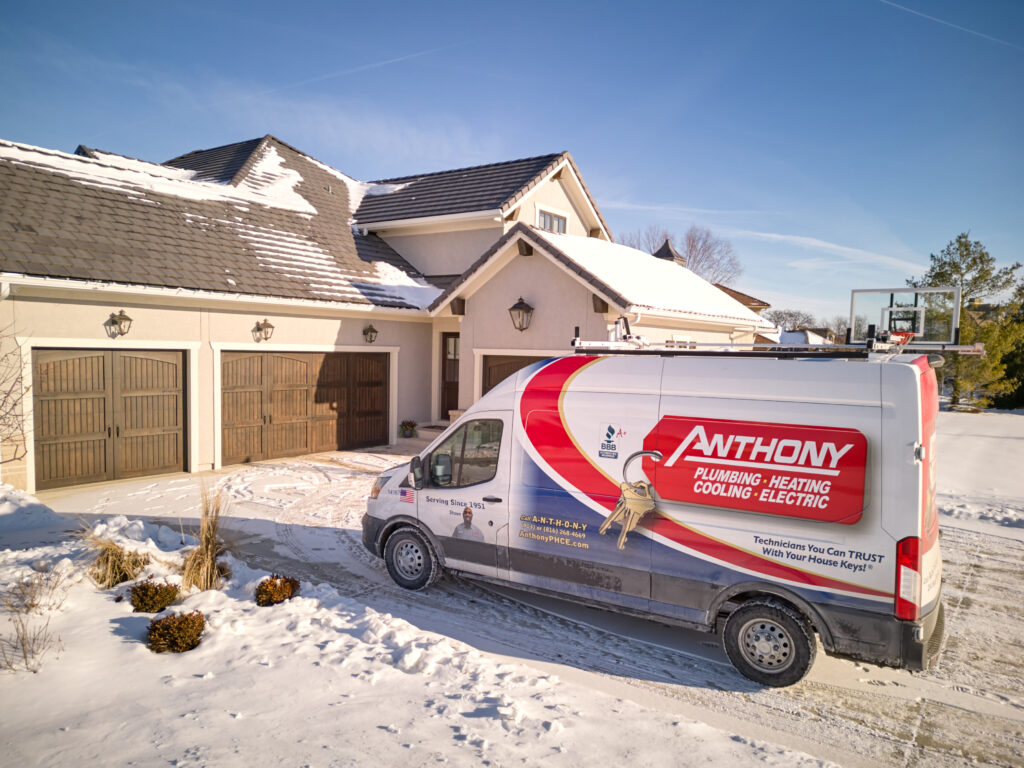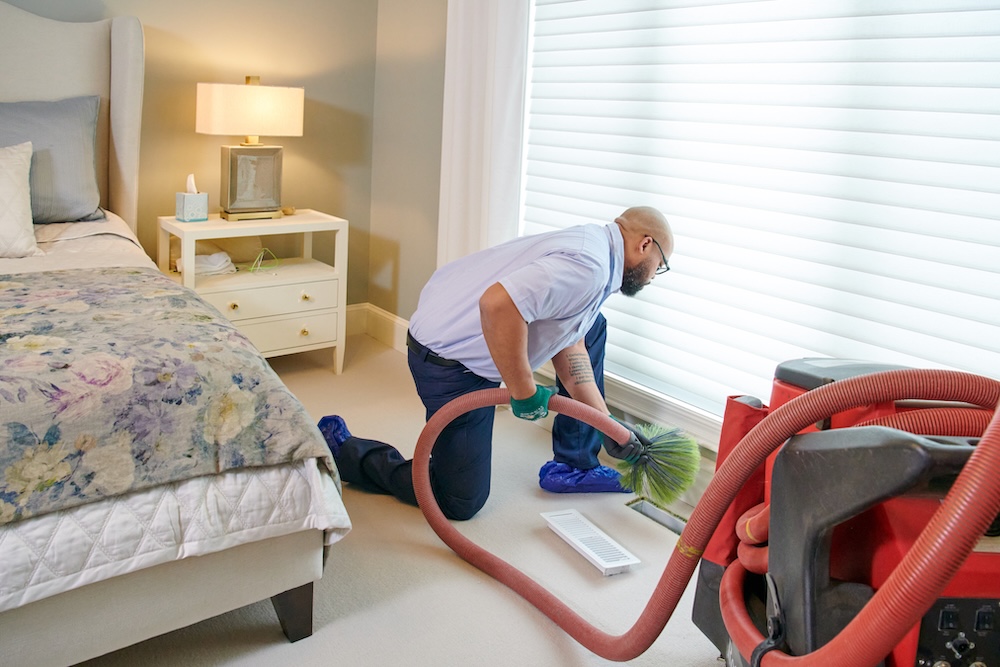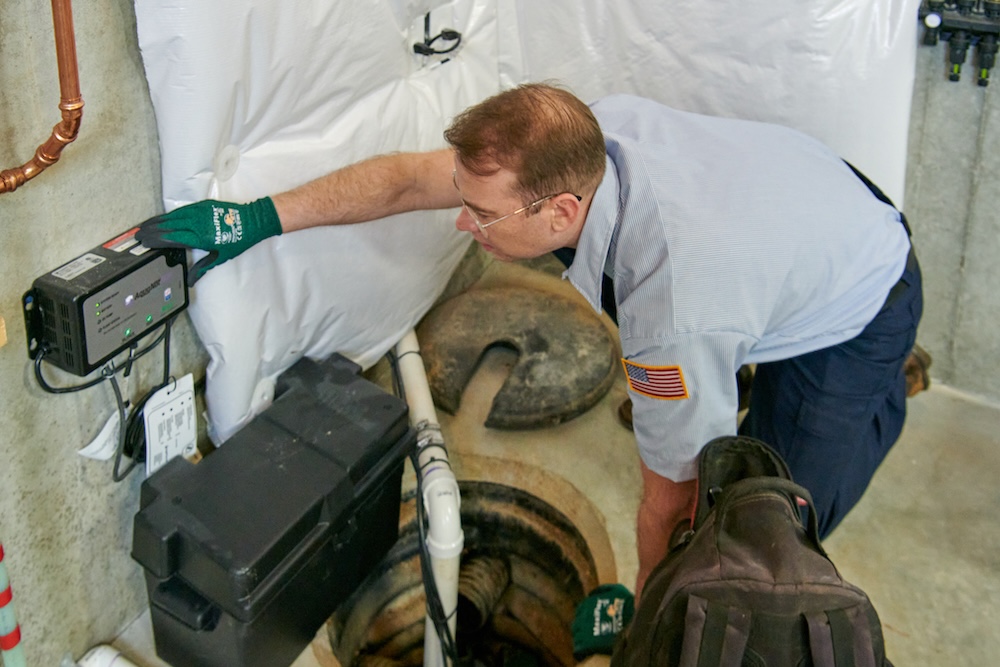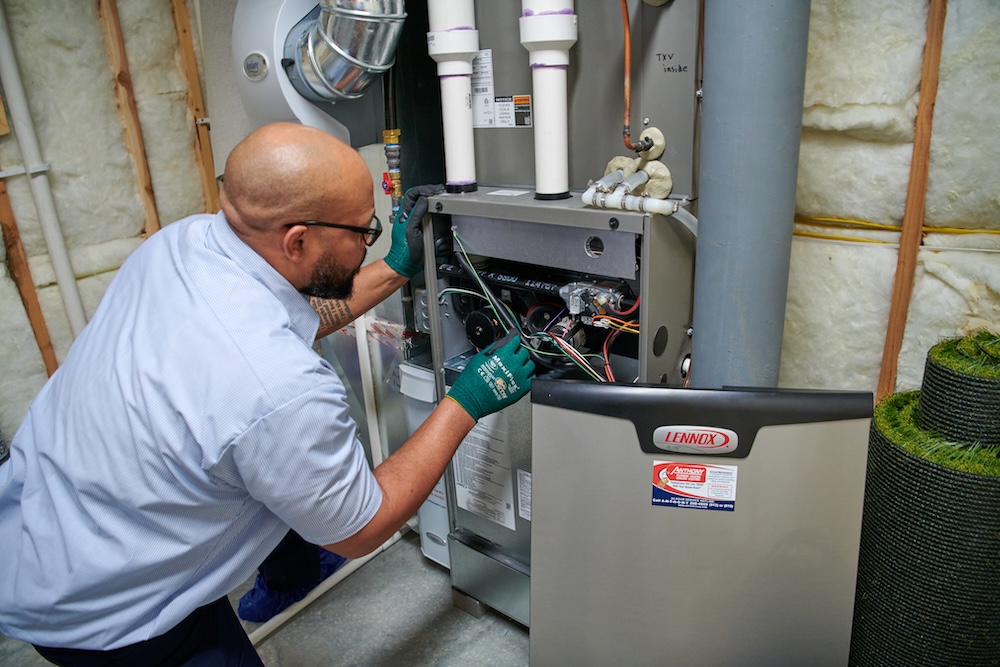BLOG
4 Signs Your Main Sewer Line Is Clogged

When your home’s plumbing begins to act up, a clogged main sewer line could be the hidden culprit. Left unaddressed, this issue can lead to costly repairs, property damage, and significant inconvenience.
Here’s how to spot the warning signs, understand the causes, and know when it’s time to call a professional like Anthony for help.
What Causes a Main Sewer Line to Clog?
Your sewer line is an important component of your plumbing system, responsible for transporting waste and wastewater from your home to the municipal sewer system or septic tank. Unfortunately, several factors can lead to blockages:
Tree Root Intrusion
Trees add beauty and shade to your property, but their roots can wreak havoc on your sewer line. Tree roots naturally seek out moisture and nutrients, and your sewer pipes provide an irresistible source.
- How It Happens: Tiny cracks or loose joints in the sewer line release moisture, attracting roots. Over time, these roots infiltrate the pipes, expanding and causing blockages.
- Why It’s Serious: Once inside the pipe, roots can grow and completely obstruct the flow of wastewater, often leading to pipe breakage or collapse. So, you need to determine how to get tree roots out of the sewer line before they become major issues.
Grease Buildup
While it might seem harmless to pour grease or cooking oil down the drain, this is a leading cause of sewer line clogs. As the grease cools, it solidifies and sticks to the walls of the pipes.
- What Happens Over Time: Layers of grease build up, narrowing the diameter of the pipe and restricting water flow.
- Hidden Culprit: Even if you rinse grease down with hot water, it can solidify further down the pipe where it cools, contributing to blockages over time.
Flushing Non-Flushable Items
Toilets are designed for one primary purpose—disposing of human waste and toilet paper. Unfortunately, flushing items like “flushable” wipes, paper towels, hygiene products, and cotton swabs can cause significant issues.
- Why It Happens: These items don’t break down like toilet paper. Instead, they accumulate in the pipes, eventually leading to clogs.
- Common Misconceptions: Even products labeled as “flushable” often fail to disintegrate, making them a frequent culprit in clogged sewer lines.
Pipe Damage or Sagging
Over time, sewer pipes can degrade, crack, or sag due to age, ground movement, or improper installation.
- How It Develops: In older homes, pipes made from materials like clay or cast iron are particularly susceptible to wear and tear. Sagging occurs when sections of the pipe settle unevenly, creating dips where waste accumulates.
- Resulting Problems: These dips and cracks make it easier for debris to collect, leading to repeated blockages.
Understanding the common causes can help you take preventive measures and minimize the risk of recurring sewer issues.
4 Warning Signs of a Clogged Main Sewer Line
Identifying the signs of a clogged sewer line early is critical to preventing costly repairs and avoiding major inconveniences. Here are four key indicators that you might have a problem with your main sewer line:
1. Slow Draining Fixtures
A single slow drain might just be a minor clog in the pipe connected to that fixture, but when multiple drains across your home—like sinks, tubs, or showers—start draining sluggishly at the same time, it’s a clear sign of a bigger issue. This often points to a blockage in the main sewer line, as the obstruction restricts the flow of wastewater leaving your home.
- What to Watch For: A gradual slowdown in water drainage is common, but a sudden, widespread issue should raise concern.
- Why It Happens: Common culprits include grease buildup, tree root intrusion, or flushed non-degradable items like wipes or hygiene products.
If you notice this happening throughout your home, it’s time to act.
2. Gurgling Sounds
Strange noises coming from your plumbing can be more than just an annoyance - they may indicate a developing sewer line problem. Gurgling sounds occur when air becomes trapped in your pipes due to a blockage.
- Where It Happens: Toilets are often the first place you’ll hear these sounds, but they can also occur in sinks and shower drains.
- What It Means: Air forced through the pipes because of a clog creates a bubbling or gurgling noise, signaling a disturbance in the normal flow of wastewater.
These sounds may initially seem harmless, but they’re often a precursor to more significant problems, such as sewage backups.
3. Sewage Backups
A sewage backup is one of the most unpleasant and alarming signs of a clogged main sewer line. If wastewater begins to flow back into your home, it’s a clear indication that the blockage is preventing proper drainage.
- How It Starts: Backups often appear in the lowest fixtures of your home, such as basement drains, ground-level toilets, or showers.
- Why It’s Serious: Backups not only cause property damage but also pose significant health hazards due to the bacteria and pathogens in the wastewater.
This is the most severe warning sign and requires immediate professional attention to mitigate damage and restore proper functionality to your plumbing.
4. Unpleasant Odors
A persistent sewage smell is a less obvious but equally important sign of a clogged main sewer line. When waste builds up in the pipes, the gasses it emits can escape through drains or even cracks in the sewer line.
- Where It’s Noticeable: The smell may originate from drains, toilets, or even outdoors near your yard where the sewer line is buried.
- Potential Consequences: These odors not only make your home uncomfortable but could also signal a larger issue, such as a crack or leak in the sewer pipe.
Ignoring these smells can lead to worsening blockages, pipe damage, or even environmental contamination.
Why Early Detection Matters
Addressing these signs as soon as they appear can save you time, stress, and expensive repairs. Waiting too long can lead to extensive damage, such as flooding, structural issues, or the need for a full sewer line replacement. If you notice any of these warning signs, call a trusted plumbing professional like Anthony to diagnose and resolve the issue before it escalates.
How to Fix a Clogged Sewer Line
If you suspect a clogged main sewer line, here’s what you should do:
- Avoid DIY Fixes: Using chemical drain cleaners or makeshift tools can damage your pipes and worsen the problem.
- Call a Professional Plumber: Experts like Anthony have the tools and expertise to diagnose and resolve sewer blockages safely and effectively.
- Request an Inspection: Professional plumbers often use cameras to inspect sewer lines, identifying the exact location and cause of the clog without unnecessary digging.
Ignoring the issue could result in substantial damage and costly repairs. Acting quickly is essential.
Why Choose Anthony for Sewer Line Repair?
With decades of experience serving Kansas and Missouri, Anthony is the trusted choice for reliable clogged sewer line repairs. Here’s why homeowners turn to us:
- Local Expertise: We understand the unique plumbing challenges faced by homes in Kansas and Missouri.
- Comprehensive Services: From sewer cleaning to installation and repair, we handle it all.
- Emergency Support: Our 24/7 live answering service allows you to reach us when you need help most.
- Community Focus: As a community-based company, we’re committed to providing top-quality service tailored to your needs.
Learn More
If your main sewer line keeps clogging or you’ve noticed signs of a sewer blockage, don’t wait. Call Anthony today at (913) 298-0444 or visit our plumbing pages for more information:





